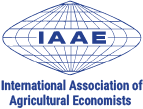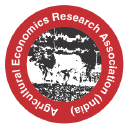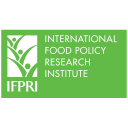ICAR-NIAP
ICAR-National Institute (formerly Centre) of Agricultural Economics and Policy Research (ICAR-NIAP) was established by the Indian Council of Agricultural Research (ICAR) in March 1991 to strengthen agricultural economics and policy research in the national agricultural research system. Application of principles of economics in planning and evaluation of agricultural R&D and policy research to promote science-led agricultural and rural development have been the main goals of ICAR-NIAP.
For more information visit : https://niap.icar.gov.in/
AERA
The Agricultural Economics Research Association (India), a registered society, came into being in 1987, and on date has more than 1000 life members, 110 ordinary members, 122 institutional members and 33 honorary life members from India and abroad. Through it’s journal, Agricultural Economics Research Review, the Association contributes to improving quality of research in agricultural economics & policy analysis and rural development.
For more information visit : http://aeraindia.in/
IFPRI
The International Food Policy Research Institute (IFPRI) provides research-based policy solutions to sustainably reduce poverty and end hunger and malnutrition. Established in 1975, IFPRI’s strategic research aims to identify and analyze alternative international and country-led strategies and policies for meeting food and nutrition needs in low- and middle-income countries, with particular emphasis on poor and vulnerable groups in those countries, gender equity, and sustainability. It is a research center of CGIAR, a worldwide partnership engaged in agricultural research for development.
Visit the global website www.ifpri.org and the regional website http://southasia.ifpri.info/ for more information.
IGIDR
Indira Gandhi Institute of Development Research (IGIDR) is an advanced research institute established and fully funded by the Reserve Bank of India for carrying out research on development issues from a multi-disciplinary point of view.
IGIDR was registered as an autonomous society on November 14, 1986 and as a public trust in January 1987. On December 28, 1987 the campus was inaugurated by Late. Shri Rajiv Gandhi, the then Prime Minister of India.
Subsequently, the Institute was recognized as a Deemed University under Section 3 of the UGC Act.
Starting as a purely research institution, it rapidly developed into a full-fledged teaching cum research organisation when it launched a Ph.D. program in the field of development studies in 1990. The objective of the Ph.D. programme is to produce researchers with diverse disciplinary backgrounds who can address issues of economics, energy and environment policies. In 1995, the institute initiated the M. Phil programme. The M.Sc. programme commenced in 2003 to introduce students to the world of research at an earlier stage.
At present the Institute has about 150 employees and students that include about 26 full time faculty members, 24 non-academic staff and about 90 M.Sc./M.Phil/Ph.D students.
For more information visit : http://www.igidr.ac.in/
NAAS
The National Academy of Agricultural Sciences (NAAS), established in 1990, is among the youngest of the Science Academies in India. It owes its origin to the vision of the late Dr. B. P. Pal, FRS. The Academy focuses on the broad field of agricultural sciences including crop husbandry, animal husbandry, fisheries, agro-forestry and interface between agriculture and agro-industry. The Academy’s role is to provide a forum to Agricultural Scientists to deliberate on important issues of agricultural research, education and extension and present views of the scientific community as policy inputs to planners, decision/opinion makers at various levels. To achieve this, the Academy organizes and supports national and international congresses, conferences, seminars, symposia, workshops and brainstorming sessions on critical issues in the field of agricultural sciences. The Academy accords recognition to scientists at various levels, and encourages cutting edge research in different fields of agricultural sciences. In 2001, the Academy instituted a scheme of NAAS-TATA Research Fellowships for Young Scientists (with one for the North East Region) with support from the Sir Dorabji Tata Trust. In 2003, ‘Associateship’ of the Academy was introduced for Young Scientists.
The Academy has emerged as a vibrant national level body devoted to agricultural sciences. The Fellows of the Academy, recognized for their contributions to science, include distinguished personalities in the field of Agriculture and Allied Sciences, both from India and abroad. The Academy has also established “Corporate Membership”, “Corporate Fellowship” and “Institutional Membership” to attract involvement of Industry and Institutions in supporting the activities of the Academy.
For more information visit : https://naas.org.in/
ISAE
The establishment of the Society in December 1939 constituted a landmark in the progress in the study of agricultural economics in India . In its establishment a notable role was played by the late Lord L.K. Elmhirst, the founder-President of the International Conference (now Association) of Agricultural Economists and by Dr. T.G. Shirname. Among the distinguished persons who occupied the post of President of the Society in its formative years were the late Sir Malcolm Darling and Sir T. Vijayaraghavacharya. But it was left to Sir Manilal B. Nanavati to infuse it with a sense of purpose and direction. It was during his Presidentship covering a period of 17 years from 1943 to 1959 that the Society acquired its present status and stability. The Society is registered under the Societies Registration Act, 1860 and the Bombay Public Trusts Act, 1950.
For more information visit : https://isaeindia.org/







